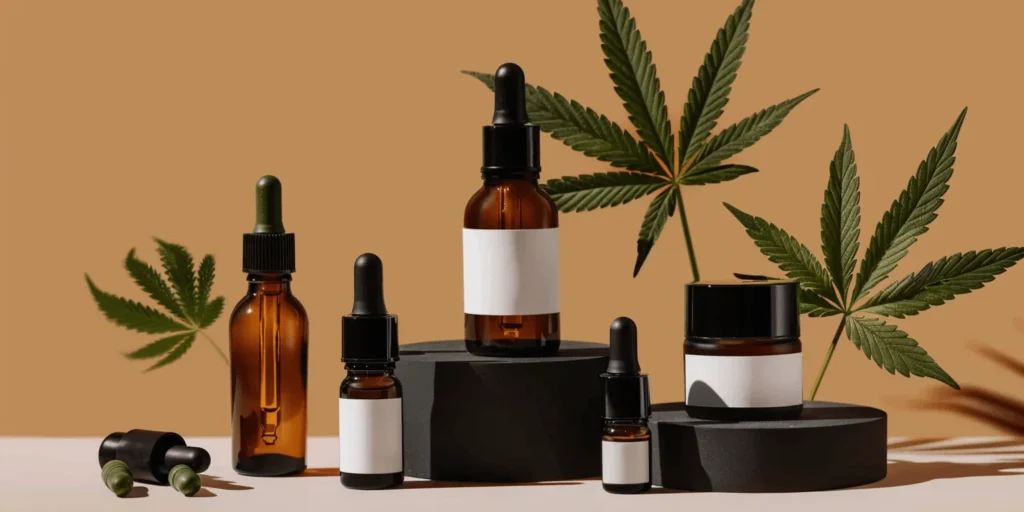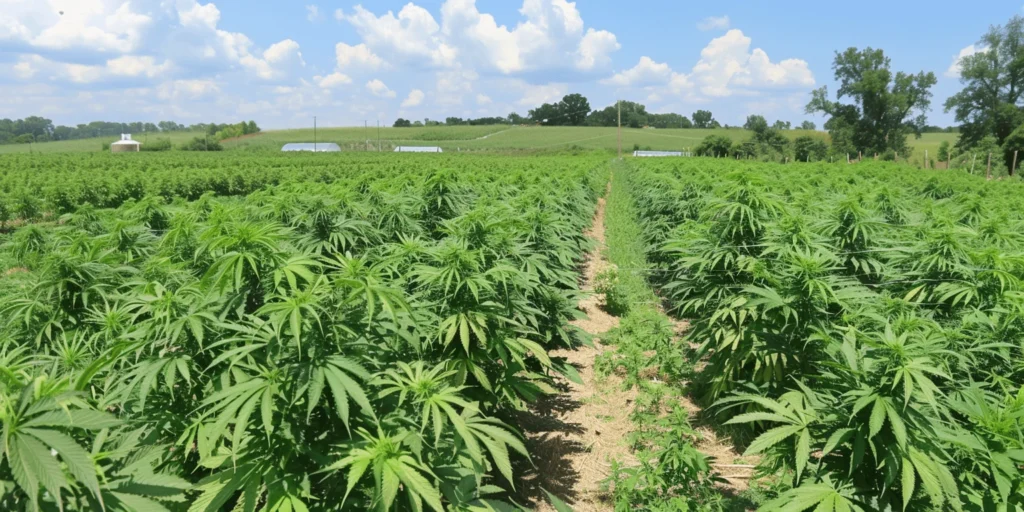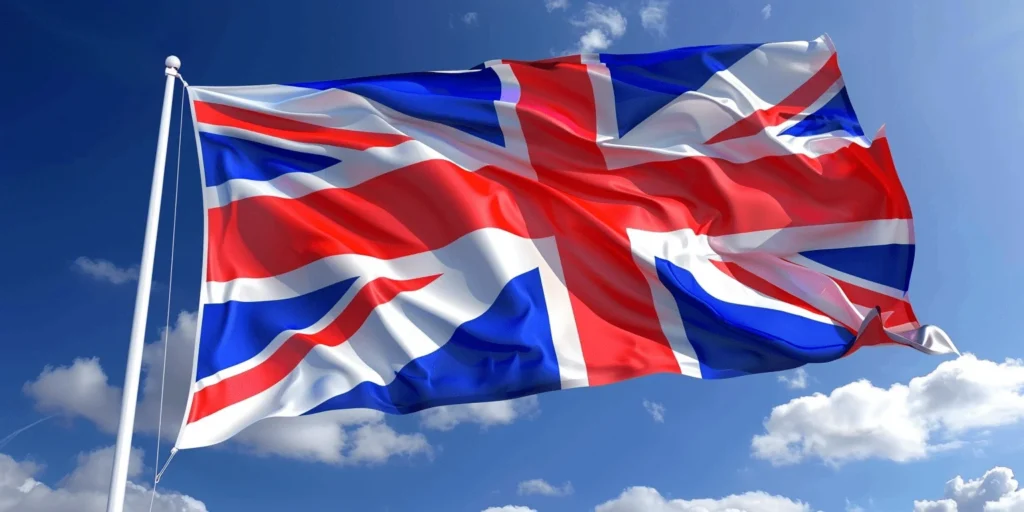If you’re here, the question “Is CBD oil legal in Europe?” might be important to you. CBD is legal in many countries in Europe if the THC content does not exceed 0.2%, but regulations can vary up to 0.3%. While CBD oils are widely permitted, CBD edibles require approval from the European Food Safety Authority (EFSA) as a novel food before they can be legally sold.
In recent years, the benefits of CBD oil became widely recognized and accepted, demanding governments around the world, including Europe, to regulate laws to allow its use. Despite CBD’s popularity, legal transitions take time. In the EU, CBD oil is classified as novel food, meaning it cannot be legally added to food or food supplements until a safety evaluation has been performed.
Although many countries in Europe are legalizing CBD oil, it is still essential to pay close attention to legal details, especially for the CBD market entrants.
A quick overview of legal CBD products in Europe
The Court of Justice of the European Union has determined that a member state of the EU cannot ban CBD lawfully produced in another member state. As a natural compound found in hemp plants, CBD is not specifically banned in any European country.
However, different countries in Europe can regulate or limit the use and consumption of CBD products. This means that not all uses or products containing CBD are automatically permitted.
For example, CBD e-liquids are allowed in most European countries, whereas CBD edibles are not legal across all European Union. This distinction highlights the complexity of CBD oil legality, needing careful attention to the specific regulations of each country in Europe.

Edible CBD legality
The use of edible CBD involves oral consumption. In countries where the sale of CBD for oral consumption is legally permitted, such as the Czech Republic, edible CBD products are common. However, in many European countries, CBD cannot be marketed for oral consumption. This restriction means that, unlike in some regions, you won’t find CBD edibles widely available in Europe. In countries where edible CBD is legal, products like CBD gummies are popular.
To sell edible CBD in the European Union, approval from the European Food Safety Authority (EFSA) is required. This classification means that for CBD oil to be marketed as a food supplement or food, it must receive EFSA approval.
Are CBD flowers (buds) legal?
Countries in Europe can set different regulations on various CBD products and this creates a complex view for CBD oil legality in Europe.
Additionally, not all European countries are part of the EU, further increasing the gap in regulations. For instance, most EU countries have a legal THC limit of 0.2% for any hemp derivative, including CBD buds. In contrast, Switzerland, a non-EU country, allows CBD products with up to 1% THC.
In Spain, while CBD buds are not illegal, selling them for consumption is. This means that CBD buds cannot be legally sold for smoking within Spanish territory.
These variations highlight the importance of understanding country-specific regulations when selling CBD oil and various CBD products in Europe.
The legality of CBD e-liquids
CBD e-liquids are legal in most European countries. They are typically free of THC, containing only CBD, which makes them more widely accepted across different legal frameworks. For example, in Spain, although it is illegal to sell CBD buds for smoking, CBD e-liquids can be marketed for consumption using vaporizers.
This exception highlights a significant distinction in the regulation of CBD oil products within Europe, but that doesn’t mean that businesses can’t capitalize on this market segment by ensuring their CBD products comply with the legal restrictions.
Laws on CBD cosmetics
The legality of CBD cosmetics in Europe is an important consideration for any CBD market entrant.
In early 2022, the European Commission’s Directorate-General for Internal Market, Industry, Entrepreneurship, and SMEs added plant-derived CBD to the CosIng list. This list serves as an all-inclusive database of cosmetic ingredients, guiding EU countries in adapting their national cosmetics regulations.
Moreover, all CBD cosmetics marketed in the EU must be registered on the Cosmetic Product Notification Portal (CPNP) by the responsible company. At Hempo Solutions, we can completely guide you through the CPNP process.

The legality of CBD oil in Europe
Although CBD oil is widely legal in Europe, most European countries may still have regulations determining which forms of CBD are not legal. As you already know, CBD e-liquids are legal in most European countries, whereas CBD edibles require approval by the European Food Safety Authority (EFSA) as a novel food.
In countries where CBD oil is legal, there are often limits on the THC content (this usually can’t exceed 0.2%). Nevertheless, Norway only permits CBD products with no trace of THC.
If you want to understand these complex legal landscapes to successfully market CBD oil in Europe, we’re here to help. Here’s a table showing CBD oil’s legality in different European countries.
Restrictions in different European countries
| Country | THC level (less than) | Is CBD oil legal? |
| Belgium | 0.2% | Legal with a medical prescription |
| Croatia | 0.2% | Legal |
| Bulgaria | 0.2% | Legal |
| Denmark | 0.2% | Legal |
| Czech Republic | 0.3% | Legal |
| Cyprus | 0.2% | Legal |
| Estonia | 0.2% | Legal |
| Finland | 0.2% | Legal |
| Austria | 0.3% | Legal |
| France | 0.3% | Legal |
| Germany | 0.2% | Legal |
| Hungary | 0.2% | Legal |
| Italy | 0.6% | Legal |
| Ireland | THC-free | Legal |
| Lithuania | 0.2% | Legal |
| Luxembourg | 0.3% | Legal |
| Latvia | 0.2% | Legal |
| Malta | 0.3% | Legal |
| Netherlands | 0.05% | Legal |
| Poland | 0.3% | Legal |
| Portugal | 0.2% | Legal |
| Romania | 0.2% | Legal |
| Slovenia | 0.2% | Legal |
| UK | THC-free | Legal |
| Sweden | THC-free | Legal |
| Spain | 0.2% | Legal as cosmetic |
| Greece | 0.2% | Legal |
| Switzerland | 1% | Legal |
| Norway | THC-free | Legal |
You can read more about CBD oil legality in certain European countries here:
- Is CBD oil legal in Poland? [2025 new update]
- Is CBD oil legal in Germany? [2025] Comprehensive guide
- Is CBD oil legal in Spain? [2025 new information]
- Is CBD legal in Belgium? [2025 update]
The major changes in the whole EU
The reasonably recent addition of CBD to the CosIng database by the European Commission that we’ve already mentioned signifies an important milestone. This entry, which covers CBD oil derived from extract, allows non-synthetic CBD to be incorporated into skincare formulations. This demonstrates the EU authorities’ commitment to finalizing the applications for CBD oil in a manner that benefits all parties, including consumers.
Changes made in the 2022
While CBD oil may be recognized as a novel food, it still must undergo a accurate registration procedure with the European Food Safety Authority (EFSA) to be officially regarded as such across the European Union.
By mid-2022, 19 applications had been submitted to the EFSA for CBD products to gain novel food status. However, as of November 2022, none of these applications had been concluded because the EFSA needed additional information regarding potential adverse effects of CBD. It is important to note that this pause in the application process does not indicate that CBD is considered unsafe. The agency has expressed its intent to work closely with relevant stakeholders to gather the necessary data to finalize the process.
2023 update
On January 1, 2023, the European Union implemented a new Common Agricultural Policy (CAP), which sets common standards for importing certain agricultural products, including hemp, into the European market.
A significant change in the new CAP is the increase in the permitted THC threshold in raw imported hemp from 0.2% to 0.3%. This adjustment aligns with the broader trend of supporting the CBD oil industry within Europe and represents a progressive step.
However, the THC content regulation varies by member state – for example, Italy may allow higher THC levels (<0.6%), while others may adopt lower thresholds.

Future prospects: 2025
The future of CBD oil legality in Europe looks promising as regulatory frameworks continue to evolve. As of 2025, CBD oil is legal in most European countries, with regulations primarily focusing on THC content. The European CBD oil market, already the second largest globally, continues to expand and is expected to offer even greater opportunities for innovation.
In 2025, the EU is set to work to make CBD rules more consistent across all member countries. The European Food Safety Authority (EFSA) has started approving the first applications for CBD products as “novel foods” after working closely with experts and businesses. These approvals will make it easier for companies to sell CBD products, provide clearer legal rules, and help the CBD industry grow quickly in Europe.
Sustainability and local hemp production
In 2025, CBD production in Europe is becoming more focused on sustainability. The EU has increased funding for environmentally friendly hemp farming through its updated Common Agricultural Policy (CAP). This encourages farmers to grow hemp locally, reducing the need for imports and making the European CBD supply chain stronger. As a result, CBD oils made in the EU are becoming more competitive in the global market.
How to sell CBD products in Europe
Consumer interest in CBD oil products has grown and continues to do so in Europe. Knowing that CBD oil is legal in most European countries allows you to start preparing your business expansion plan.
To avoid legal troubles, it is essential to find a trustworthy CBD manufacturer. At Hempo Solutions, we clearly disclose where our hemp is sourced and how our CBD oil is extracted. We also provide third-party independent lab test results.
Additionally, when entering the CBD market in Europe, it is crucial to check each country’s rules and regulations regarding the importation, manufacturing, testing requirements, and distribution.
Here at Hempo Solutions we provide our clients with valuable “know-how” regarding the legal landscape of CBD oil in Europe. This support can help you to navigate the complex regulatory environment, ensuring successful market entry.
The best markets for selling CBD
With CBD oil legal in most parts of Europe, the EU has become a dynamic CBD market, with significant production in many member nations. Today France leads in production, accounting for almost 50% of Europe’s total hemp manufacturing. Countries such as the Netherlands, Lithuania, and Romania have also shown impressive growth in production.
The largest consumer markets for CBD oil in Europe are Germany and the UK, with reports indicating that 8-11% of UK adults have tried CBD, equating to an impressive 4-6 million people. With the UK and Germany leading, Austria and Switzerland follow closely, while other countries like Poland, Bulgaria, the Netherlands, and Luxembourg also demonstrate remarkable growth.
This powerful market expansion presents significant opportunities for entrepreneurs and investors in the CBD oil industry, emphasizing the importance of understanding the legal landscape across Europe to capitalize on this growing demand.

How do specific regulations impact CBD businesses?
If you’re planning on entering the CBD oil business in Europe, understanding a certain country’s law is absolutely essential. Whether you want to grow industrial hemp, process Cannabis Sativa L., or sell CBD oil, you must be familiar with the laws of the country you are based in and the countries you are selling to.
Each country has its specific regulations regarding the cultivation of hemp and the processing, or sale of CBD oil. Being intelligent in these laws ensures compliance and helps avoid potential legal issues. This comprehensive understanding is vital for successfully navigating the complex legal landscape of CBD oil in Europe, allowing you to operate smoothly.
Key points on CBD legality in Europe
The CBD oil market in Europe currently represents a significant share of the global cannabinoid space. In most countries where CBD oil is legal, demand is increasing daily. This well-developed market, featuring thousands of CBD products available both in stores and online, offers a great opportunity for European entrepreneurs looking to expand their business.
In summary, the CBD market in Europe covers 31% of the global market share, valued at €450 million. CBD oil and products containing 0.2% THC or less are legal in most European countries. However, selling CBD in Europe poses challenges due to EU Regulation 2015/2283, which classifies CBD as a novel food. Additionally, each European country has its own regulations, requiring thorough consultation before entering the market.
CBD laws in Europe are constantly evolving, with many countries adopting different rules, highlighting the importance of staying updated on regulatory changes.
![Is CBD oil legal in Germany? [2025] Comprehensive guide Is CBD oil legal in Germany](https://hemposolutions.eu/wp-content/uploads/2024/05/Is-CBD-oil-legal-in-Germany-scaled.webp)
![Is CBD oil legal in Poland? [2025 new update] Is CBD oil legal in Poland](https://hemposolutions.eu/wp-content/uploads/2024/05/Is-CBD-oil-legal-in-Poland-scaled.webp)
![Is CBD oil legal in Spain? [2025 new information] Is CBD oil legal in Spain](https://hemposolutions.eu/wp-content/uploads/2024/05/Is-CBD-oil-legal-in-Spain-scaled.webp)